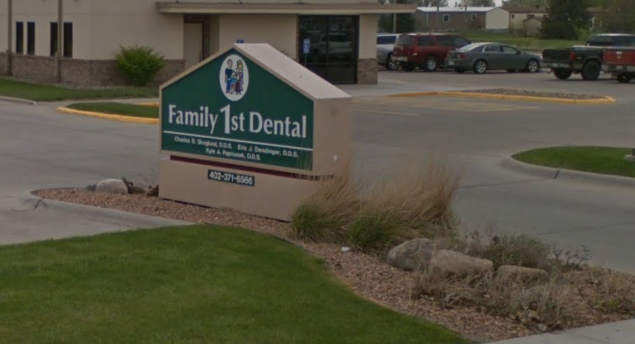Your teeth age with you. It’s important to keep them strong and healthy even as you grow older. Seniors are at a higher risk for developing periodontal disease. In addition to getting a regular dental examination, here are some other tips to keep your teeth healthy.
Keep a Routine
Regardless of age, we cannot stress the importance of keeping up with a daily oral hygiene routine. Make sure you are brushing twice-daily and flossing at least once per day. For seniors with dentures, it is important that you remove them for at least four hours each day. We recommend removing them at night. Dentures need to be cleaned daily so make it part of your routine as well. We also suggest staying hydrated by drinking water. Not only does water help keep you producing enamel building saliva, but if it contains fluoride, it can help keep your teeth strong. Make a regular visit to our office in 68701 part of your routine as well.
Tips for Caregivers
If you are the primary caregiver of someone elderly, working with them to keep their teeth healthy can be a challenge. It is up to you to remind them to brush and floss regularly. Help them by establishing a routine and set times for brushing their teeth. We ask that you assist them in making an appointment to visit our dental office. If keeping up with daily dental health seems to be too difficult, please contact our office. We can work with you to offer some advice and solutions.
Financial Assistance
For seniors in a nursing home that are enrolled in state or national financial programs, the American Dental Association (ADA) suggests considering the Incurred Medical Expense regulation. This works to assist in paying for care that is deemed a necessity. If our dentist in Norfolk, NE finds that treatment must be done, consider this as an option to lessen the financial burden. Talk to your nursing home or care facility’s caseworker for more information.
Don’t Forget About Gums
Periodontal disease, or gum disease, can be brought on by certain medications. When you visit our office, be sure to update us on any changes to your medications. At times, early periodontal disease is painless which makes it even more important that you keep a regular routine of visiting our office for a thorough exam and evaluation. According to the ADA, more than 47% of adults over the age of 30 have chronic periodontitis.
Keeping your teeth healthy as you age can be difficult. We suggest sticking to a daily routine in terms of brushing and flossing, and keeping up with regular visits to our office. If you are the caregiver of an elderly spouse, parent, or loved one, do not overlook their oral health. Make sure they are receiving the needed attention and are sticking to a daily oral healthy routine.
For more tips on keeping your teeth healthy or to set up your next appointment, please contact our dental office in Norfolk, NE.






